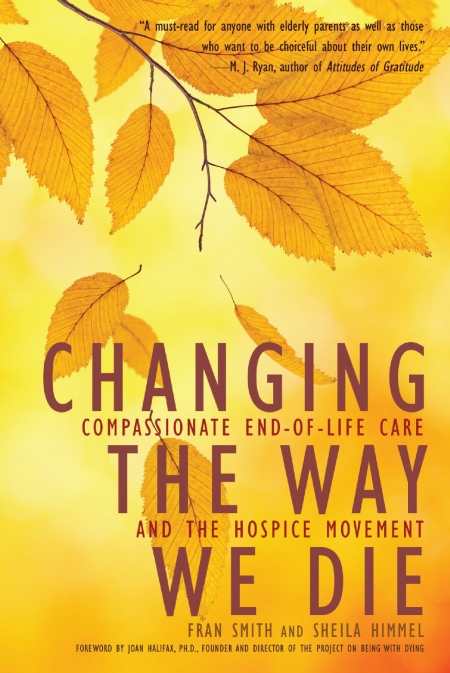Changing the Way We Die
Compassionate End-of-Life Care and the Hospice Movement
- 2013 INDIES Finalist
- Finalist, Health (Adult Nonfiction)
This volume likely will change the way many people choose to confront death, and alter the way life can be lived today.
Changing the Way We Die: Compassionate End-of-Life Care and the Hospice Movement should be required reading for physicians, nurses, and anyone else—professional or volunteer—who provides care to those who are dying. As coauthors Fran Smith and Sheila Himmel explain, “Hospice is not a place but a philosophy about living, dying, and dignity, and a set of practices to ease suffering.” As the authors contend, it is a philosophy that should permeate all of health care, not just the last days, weeks, or months of life.
Superb writing makes Changing the Way We Die an easy read, even though the subject matter is anything but easy. As the authors concede, it is the rare person who wants to talk about dying, particularly if it involves discussion of one’s own death. But Smith and Himmel make that conversation more than accessible, as well as evidence-based. Through vignettes extracted from interviews of dying persons, caregivers, and health care professionals, the authors convincingly argue the point that end-of-life discussions not only are important, they are vital.
The book is organized in four sections. Part one chronicles the history of the hospice movement, first in England and later in the United States, where the industry is transforming from not-for-profit to profit-based care, including the pros and cons of hospice care driven by the corporate bottom line. The authors note: “About 1.5 million Americans a year die in hospice care—44 percent of all deaths. A $14 billion industry serves the growing demand.” By 2012, for-profit businesses comprised 60 percent of Medicare-certified hospice providers, with one of the biggest players being Chemed Corporation, which owns Roto-Rooter.
Medicare and the Affordable Care Act make hospice available to almost everyone, although ethnic and racial minorities are much less likely to participate. However, federal social service programs also have changed the essence of hospice because “the ideal of care driven solely by the needs of patients [has] collided with a system dictated by regulations and pressures to hold down costs.”
The book’s other sections relate poignant stories by patients, family members, friends, and end-of-life caregivers illustrating the belief that “waiting until the very end to choose hospice, clinging to the sliver of hope that the next new drug or procedure will bring the miracle, diminishes the possibility of dying well.” Because this viewpoint contrasts sharply with the medical model’s almost exclusive focus on curing patients, many health care professionals have resisted the hospice movement, even though a 2011 poll of one thousand adults published in National Journal revealed that 71 percent indicated “it is more important to improve the quality of life of a seriously ill patient than to extend life through every medical intervention conceivable.”
Both authors are award-winning journalists and consultants. Smith has won accolades for medical reporting, health care investigations, and feature writing, and shared a Pulitzer Prize as a reporter at the San Jose Mercury News. Himmel writes for publications including the New York Times and Eating Well. She earned the James Beard Award for feature writing as a restaurant critic.
Those who favor prolonging their life as long as possible through aggressive medical procedures and those who steer a more compassionate course via hospice should not miss the opportunity to read Changing the Way We Die. This volume likely will change the way many people choose to confront death. Equally important, it may alter the way life can be lived today.
Reviewed by
Nancy Walker
Disclosure: This article is not an endorsement, but a review. The publisher of this book provided free copies of the book and paid a small fee to have their book reviewed by a professional reviewer. Foreword Reviews and Clarion Reviews make no guarantee that the publisher will receive a positive review. Foreword Magazine, Inc. is disclosing this in accordance with the Federal Trade Commission’s 16 CFR, Part 255.

